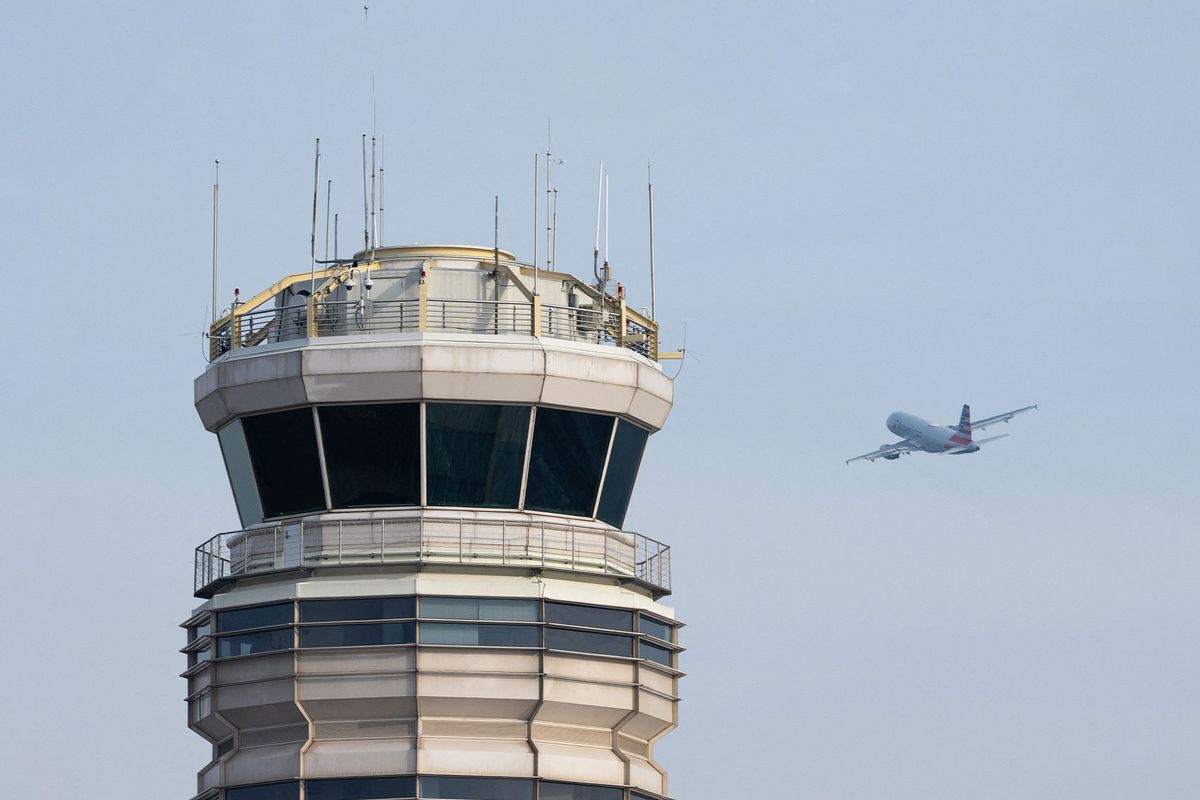Here's how it's probably going to happen. Millions of American phones will buzz with push notifications, and millions of thumbs will swipe-open a breaking news article. There they'll read gruesome details about a fatal, yet wholly preventable, commercial aircraft collision like those warned of in recent New York Times reporting about the 300-plus near-crashes that happened this year.
While it could occur at LaGuardia or LAX, it'll likely be at a smaller, regional airport — one that's been barely holding its World War II-era bricks together with breadcrumb capital funds and a skeleton crew of air traffic controllers working six-day burn-out shifts for minimal pay.
As tragedies tend to go in the US, the story will dominate headlines for a week or so. Feature profiles will include haunting family photos and somberly spoken descriptions of young lives cut short, or grandparents killed. Investigative news coverage will prowl through Federal Aviation Administration records, highlighting a trail of terrifying data and repeated pleas from the unions. Capitol Hill reporting will relay the most colorful quotes from the two parties — one screaming for privatization, the other for air safety funding.
When (God forbid) it happens, pundits will nervously recall the Biden administration backstabbing rail union workers. Those pundits will ask: Remember when Ronald Reagan fired 11,345 air traffic controllers (mostly military veterans) in the '80s because they went on strike, and how he doomed the FAA to a recurring 25-year staffing crisis, based on retirement age.
And, finally, you and I will feel a terrible truth creeping up on us: By the time the Congressional dust settles and all the lobbying checks are cashed, public aviation regulation is probably going to look a lot like the rest of public transportation in this country. Or like public education, public health, public nutrition, public housing... In other words, it's going to be intentionally starved to death so profiteers can justify its increasingly rapid privatization.
Maybe all this seems rather out of the blue to you, and you think I'm overreacting. If so, fair enough. After all, as the Times notes, major airlines in the US haven't seen a fatal crash in 14 years — the longest safety streak in the country's history. By my lights, though, that's exactly why it's going to be so abrupt and horrific if something catastrophic happens.
But let's do some math here, and you can tell me how far I'm blowing the risk out of proportion.
In a single month, there were 46 close calls — that's when two or more commercial passenger aircraft get within seconds of fatal cataclysmic destruction. Close calls have dramatically increased in the past decade per FAA inspector general reports, and are now happening multiple times a week — with 300 close calls in a single 12-month period. Mind you, those are only the close calls that appeared in a single, NASA-maintained database accessed by the Times. There is a labyrinth of reporting systems where further documentation could be dug-up.
"It is only a matter of time before something catastrophic happens."
The Times found that 99% of US air traffic control facilities (that's 310 out of 313) do not have enough certified controllers for basic safety standards. We're now more than halfway through 2023, and some controllers already have racked up more than 400 hours of overtime. And in the past decade, the number of fully trained controllers fell 10% while airport traffic has increased 5%. That traffic has increased on more than 450 runways which have no surface-detection imminent-collision warning systems — despite the National Transportation Safety Board calling for the FAA to install them in 2017. (Sorry, Safety Board. No funding, no systems.)
Want more health and science stories in your inbox? Subscribe to Salon's weekly newsletter Lab Notes.
There are about 10,700 certified air traffic controllers currently — with 13,300 controllers overall, trainees accounting for 26% — which is consistent with 2021 levels and a couple hundred more than last year. Meanwhile, however, US aviation overall is short about 32,000 air traffic controllers, pilots and mechanics.
After you get hired, it can take years — years! — of training to become a certified air traffic controller, a profoundly high-skill job that has consistently ranked for years among the most stressful in nearly every poll across US professions. The FAA's most recent budget request sought $117 million to hire and train 1,800 new controllers in 2024, but they already expect to lose at least 1,400 controllers next year. In 2023, the FAA is already boasting of hiring 1,500 controllers — which is barely treading water, considering how long it will take these trainees to be ready.
We need your help to stay independent
Based on the above equation, how long do you think we have exactly before we get those push notifications?
"The staffing shortage is beyond unsustainable. It has now moved into a phase of JUST PLAIN DANGEROUS," one air traffic controller wrote in a safety report that The Times reviewed. "Controllers are making mistakes left and right. Fatigue is extreme … The margin for safety has eroded tenfold. Morale is rock bottom. I catch myself taking risks and shortcuts I normally would never take."
"It is only a matter of time before something catastrophic happens," the controller wrote.
And when we get those notifications, will each of us have a conscience satisfied that we too tried to prevent it in whatever bell-ringing, hell-raising way we could?
An earlier version of this article originally appeared in Salon's Lab Notes, a weekly newsletter from our Health & Science team.
Read more
about the science and political landscape of US aviation
- Bumps in the air: What's climate change got to do with turbulence?
- Drones are inviting disaster: "It's only a matter of time before we have a tragedy on our hands"
- Federal lawsuit against FAA aims to protect Texas from "exploding rockets" of Elon Musk
- Why you don't own the right to recline in your airplane seat



Shares